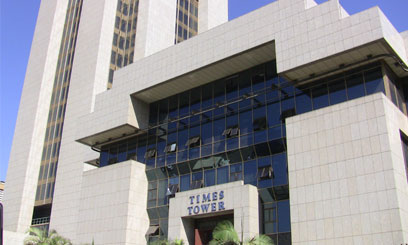
According to the parliamentary budget office, the government lost Sh275 billion in the 2009/10 fiscal year./FILE
NAIROBI, Kenya, May 4 – The government loses close to Sh300 billion every year from uncollected tax revenue in the informal sector.
According to the parliamentary budget office, the government lost Sh275 billion in the 2009/10 fiscal year.
A fiscal analyst from the office Martin Masinde said there is lack of proper policy to ensure good collection of taxes from the informal sector.
At the moment compared to other segments, the informal sector provides 75 percent of jobs to Kenyans, but only contributes 18 percent to the Gross Domestic Product (GDP).
“One of the main reasons why these people don’t pay tax is because they keep on moving from one place to another, they don’t have permanent premises where the taxman can get them. Again they are seasonal; the products they sell depend on the need and season. Today if it’s raining he will sell umbrellas, and tomorrow something else,” Masinde explained, while speaking at a forum organised by the Institute of Economic Affairs.
The government lost Sh63.5 billion, Sh69.73 billion and Sh79.273 billion in 2006, 2007, and 2008 respectively.
National Informal Sector Coalition Chief Executive Officer Peter Churchill Ogutu said those in the informal sector will always evade paying tax as they don’t see their value for money.
He added that lack of quality services such as electricity, water, security and markets discourage the small and medium enterprises operators to enter the formal tax bracket and even choose to remain operating informally.
“The large number of people in the informal sector are not there by choice. But I am sure once most of these policies are implemented, we will see much more contribution to KRA (Kenya Revenue Authority) by the medium and small enterprises,” Ogutu said.
The Institute of Economic Affairs on its part wants the government through KRA to have a “one-stop-shop” whereby the entities pay their fair share of taxes at the point of licensing.
CEO Kwame Owino said a typical example will be to harmonise the registration system of the Nairobi City Council and the KRA database.
The informal sector with 8.3 million Kenyans has an annual growth rate of 2.8 percent.
The annual tax portfolio has more than tripled from Sh200 billion to Sh700 billion, with the formal sector carrying the biggest burden.


































